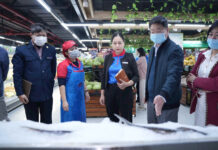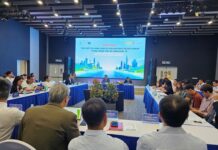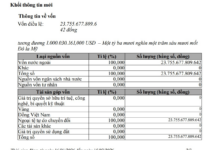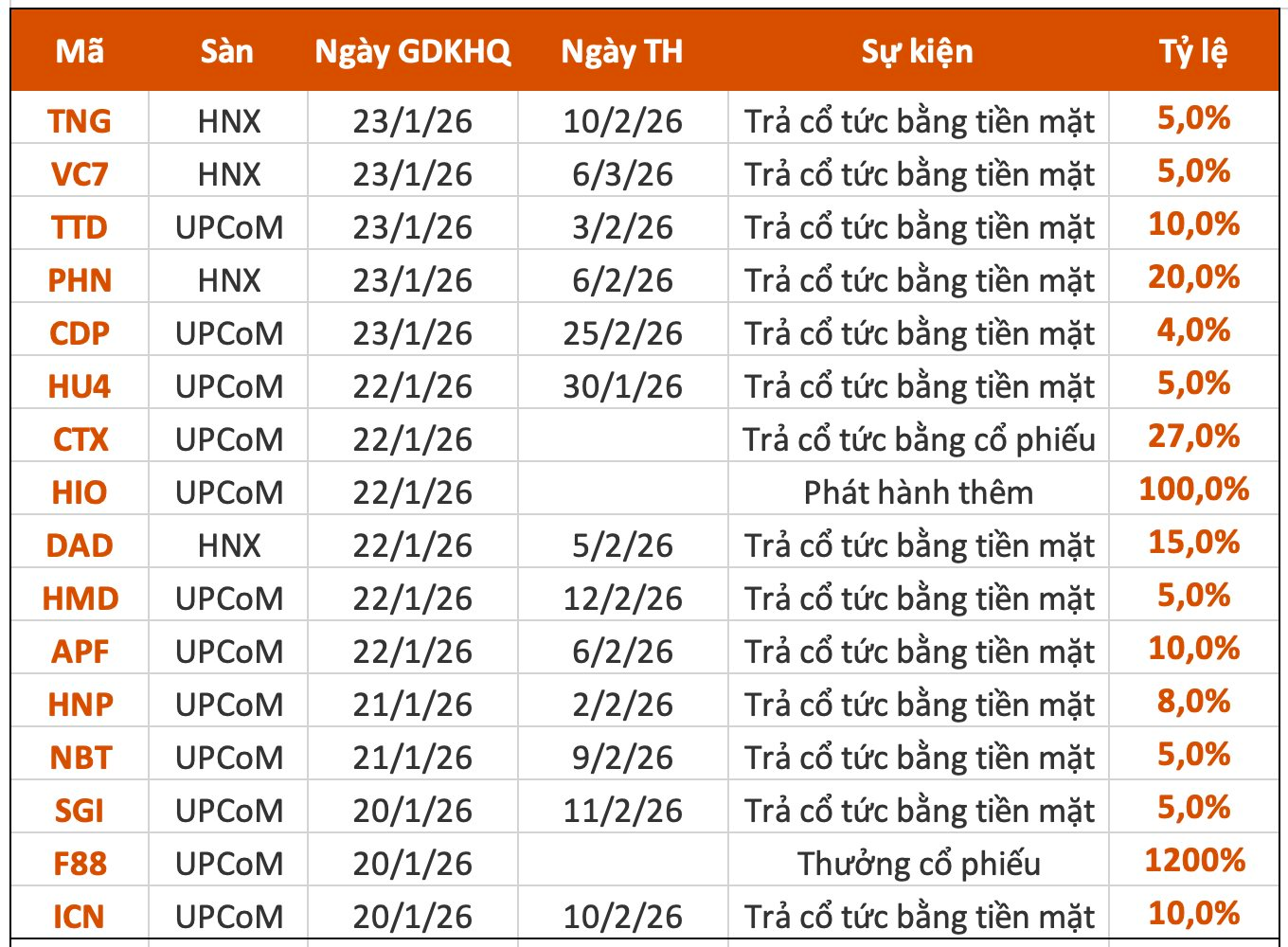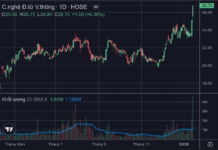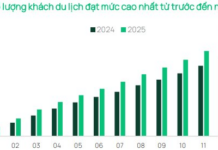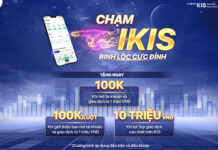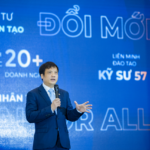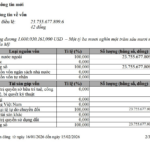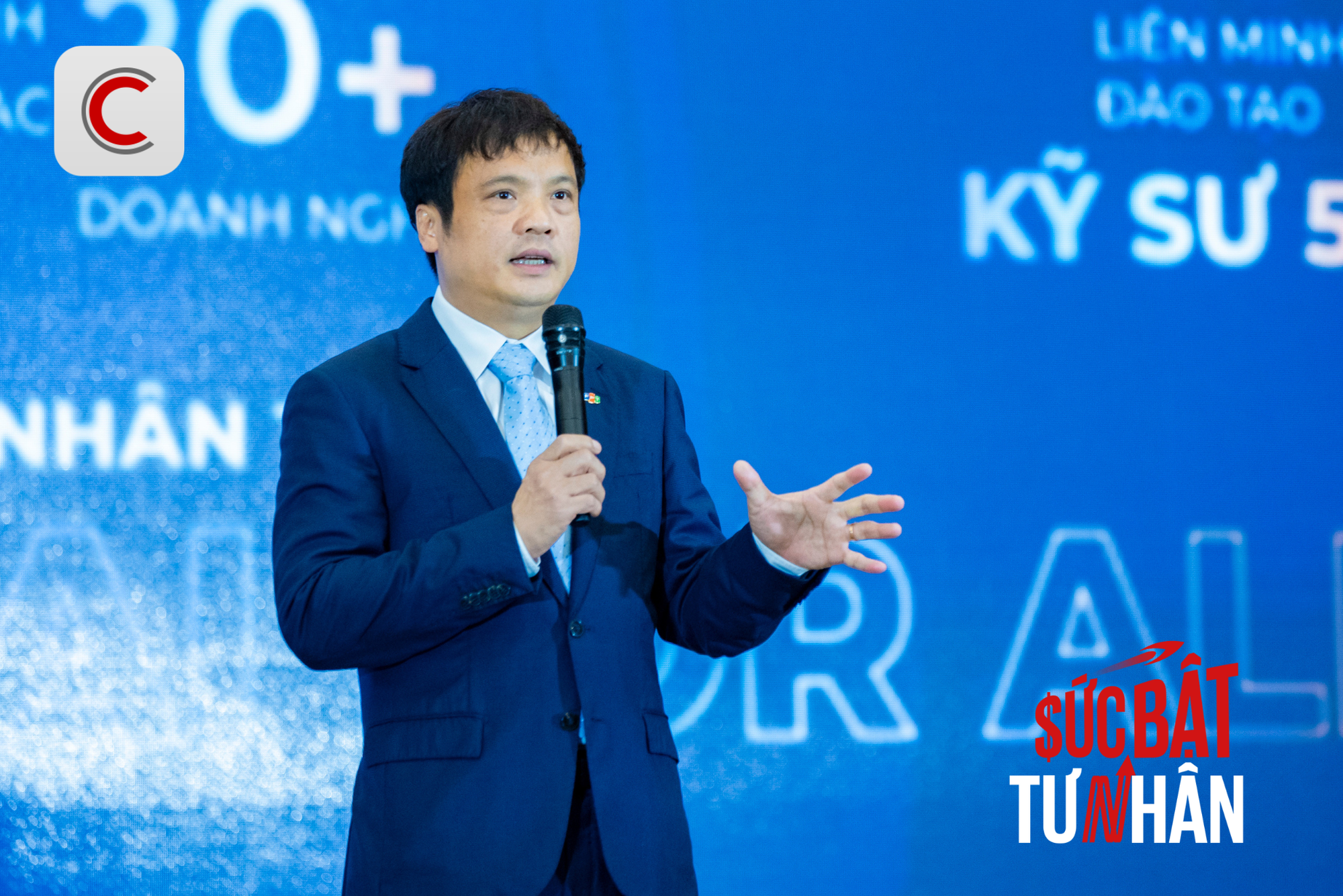
Mr. Nguyen Van Khoa – CEO of FPT
FPT Saves VND 865 Billion Through Innovation Initiatives
On October 1, 2025, during the National Innovation Day, Mr. Nguyen Van Khoa, CEO of FPT, emphasized the critical role of innovation in business and organizational development. He highlighted that innovation is not bound by regulations or financial statutes but is the most valuable intangible asset of any organization.
In the quartet of resolutions—Resolution No. 57-NQ/TW on breakthroughs in science, technology, innovation, and national digital transformation; Resolution No. 59-NQ/TW on international integration in the new context; Resolution No. 68-NQ/TW on private economic development; and Resolution No. 66-NQ/TW on legal system reform—innovation has been positioned as the core driver, not just at the national level but also within enterprises.
“Innovation will become the DNA of an enterprise, transforming it into an asset and a culture,” said Mr. Khoa.
At FPT, Mr. Khoa stressed that innovation is not a slogan but a core cultural value. Unlike a top-down approach, FPT’s 84,000 employees across 30 countries, representing 87 nationalities, are encouraged to embrace innovation in their daily tasks, no matter how small.
In 2025, FPT recorded nearly 3,000 innovation initiatives, saving VND 865 billion in operational costs.
“Notably, many creative ideas originate from frontline employees in operations, product design, and sales, rather than from leadership,” Mr. Khoa noted.
Need for a ‘Technology Strategy Map’ for Localities
To turn innovation from a slogan into practice, Mr. Khoa proposed the following:
First, accelerate the completion of legal frameworks, especially for emerging fields like digital transformation, high technology, logistics, and AI.
“While resolutions exist, specific implementation mechanisms are lacking. We need dedicated laws and decrees to support Resolution 57, and the government should issue them promptly,” he urged.
Second, all policies must include detailed, flexible, and practical operational guidelines for businesses.
Third, focus on heavy industry, light industry, and manufacturing. Mr. Khoa explained that innovation efforts currently lean toward IT and newer sectors, but Resolution 57 has yet to address innovation in fundamental industries like processing, manufacturing, heavy, and light industries.
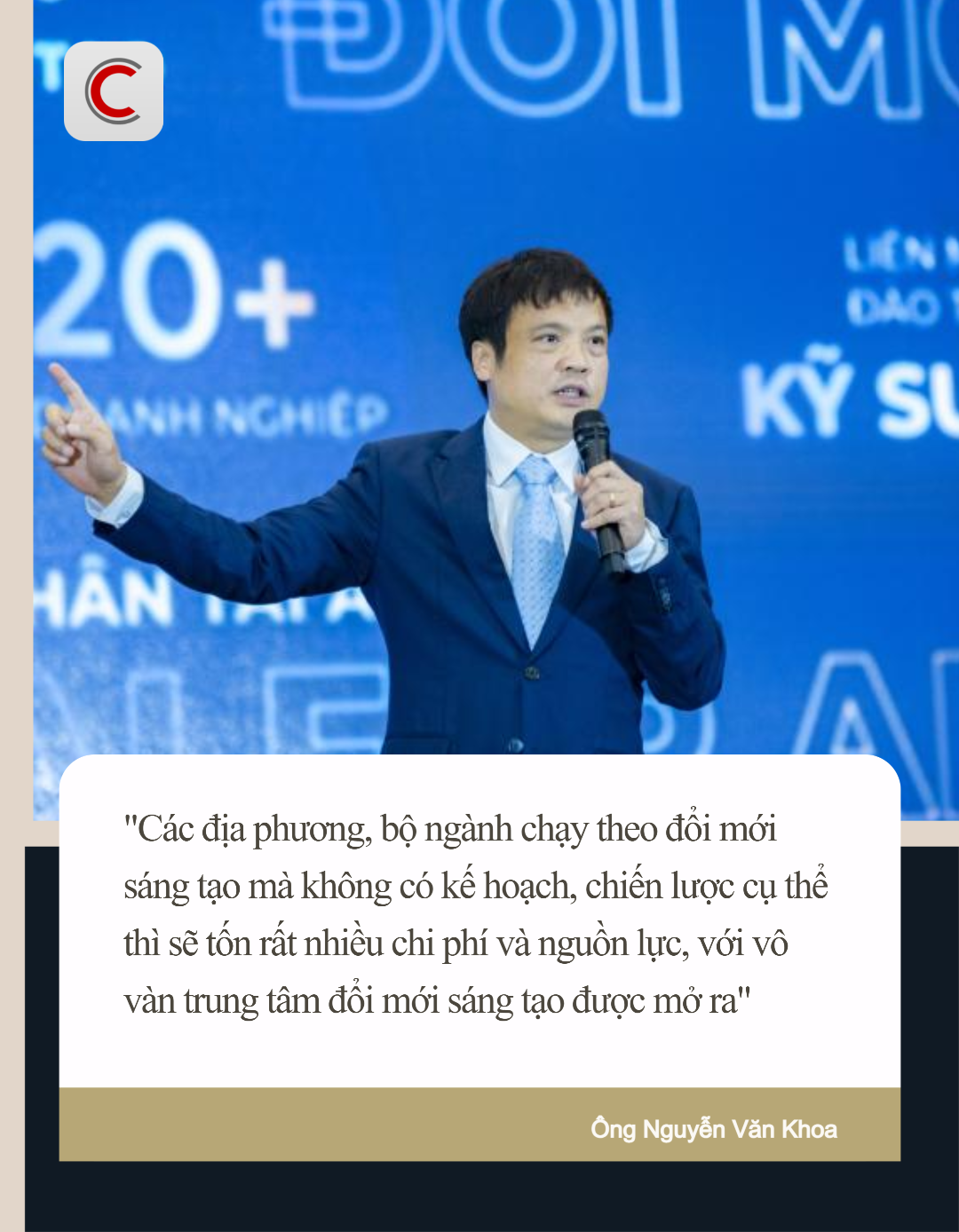
Fourth, localities and ministries pursuing innovation without clear plans or strategies risk wasting resources. Numerous innovation centers have been established without a cohesive approach.
Mr. Khoa suggested that the Ministry of Science and Technology develop a ‘Technology Strategy Map’ for each of the 34 provinces and centrally-governed cities, based on their unique capabilities, advantages, and development potential.
This would enable research institutions and universities to tailor training, research, and technology transfer programs to align with local development goals. Businesses could then form regional partnerships, create innovation value chains, and invest more strategically in these localities. This approach would make innovation the cornerstone of local economic development.
Fifth, large enterprises must lead the ecosystem, not just through financial or technological resources, but by sharing strategic thinking, management expertise, and ethical business practices.
“They must pave the way, inspire, and collaborate on core technologies to solve national challenges, helping smaller businesses enhance their capabilities and integrate into larger value chains,” he stated.
Finally, regarding international cooperation, Mr. Khoa emphasized that Vietnam can accelerate its entry into the tech industry through AI. With its technological capabilities, data resources, scale, and strategic location, Vietnam could become a regional hub in Asia. He believes that with a robust legal framework, supportive businesses, and a skilled workforce, Vietnam’s innovation efforts will succeed.
Nam A Bank Reports Over VND 3,800 Billion in Profit After 9 Months, Total Assets Surpass VND 377,000 Billion
In the first nine months of 2025, Nam A Commercial Joint Stock Bank (Nam A Bank, HOSE: NAB) reported a series of robust financial metrics, underscoring the success of its green and digital strategies within its 33-year growth journey.
Is Modern Technology and Retail Reshaping the Food Industry?
From growing food safety concerns to the rising demand for convenience, Vietnam’s meat market is undergoing a transformative shift. Beyond the foundational market demand, what key factors will empower branded processed meat companies to leverage their strengths and surge ahead in an increasingly competitive landscape?
Unlocking Economic Evolution: FPT CEO Advocates Innovation as the Core DNA of Vietnam’s Economy
At the 2025 National Innovation Policy Forum, FPT CEO Nguyen Van Khoa emphasized that innovation is the “lifeblood of development.” He advocated for a robust legal framework, practical policy implementation, and the leadership of major corporations to foster a sustainable innovation ecosystem.


